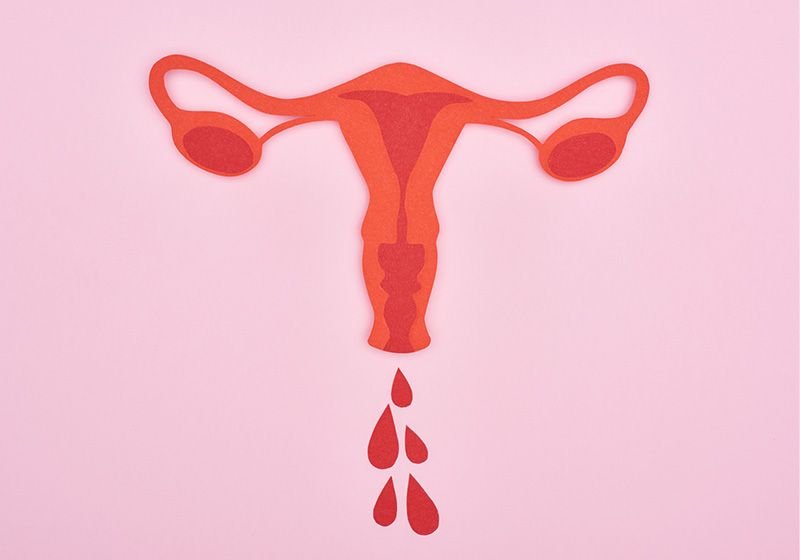Reproductive Lifespan is Partially Encoded in the Genes

The first time a child gets their period, also known as menarche, is a monumental occasion. It can be surprising and scary, but at the same time it marks a critical milestone in maturing into an adult. While many people may expect the first signs of menstruation to appear in middle school, the timing can vary much more broadly. Some people get their first period at the age of eight, while for others it does not come until the age of 15.
“That’s one of the fascinating aspects of reproductive biology,” said Ken Ong, a pediatric endocrinologist at the University of Cambridge. “Even within the normal range, there’s such a wide range.” Ong has seen firsthand among his patients, however, that an especially early or late period can be quite distressing and strategies to treat abnormal puberty are imprecise, rarely targeting the underlying causes of puberty timing.
Previous studies showed that this variation emerges, at least in part, because of genetic differences.1 To better understand how much genes influence the timing of menstruation and which biological pathways are involved, Ong led a team of researchers that conducted a genome-wide study to find differences in people’s genomes that are linked to changes in the age at menarche.2 The study, published in Nature Genetics, identified more than 1,000 genetic variants that reveal complex relationships between puberty and hormones, weight gain, and brain signaling. These results shed light on potential new ways to diagnose and treat abnormal menstrual timing.
Using large biobanks in the United Kingdom, China, South Korea, and Japan, the researchers combined genetic and age at menarche information from more than 800,000 people. Most prior research of age at menarche focused on people of European ancestry, but menstruation patterns can vary across ancestries, which motivated Ong to look more broadly in this study.
Across these individuals, the team found 1,080 single-nucleotide genetic changes linked to the age at first period. Each variant was associated with a fairly small change in timing of approximately a few days or a week, but together, these variants explained 11 percent of the differences in age at menarche between people—twice as much as previous studies had found in smaller samples of solely European individuals. This is similar to the amount of influence that genes have on traits such as body mass index.3
Ong’s team then tried to link each variant to a specific gene or biological pathway. He was particularly interested in how puberty-associated genes might explain a curious trend that he and other physicians noticed: people who gained weight early in life often got their first period earlier. “We haven’t quite gotten to the bottom of how the body remembers that early trajectory,” he said.
Certain genes linked to early age at menarche seemed to be involved in weight gain. For example, G protein-coupled receptor 83 (GPR83) and melanocortin 3 receptor (MC3R) are expressed in the brain and influence energy metabolism. Overall, around half of the genes linked to menstruation at an early age promote faster growth in the first two years of life, while the other half do not affect growth. For Ong, this suggested that some people might have genes that lead to weight gain that ultimately causes an earlier first period, while in others the earlier first period is caused by other biological differences. “We know it’s not one distinct pathway driving it,” Ong said.
These genetic findings could also shed light on the other end of reproductive life: menopause. Puberty timing and menopause are correlated, and the current study showed that they share genetic drivers.4 Ong hopes to dig deeper into the biological processes at play in further studies and investigate more complex genetic variation to potentially find variants with larger effects on these timings.
Nilufer Rahmioglu, a genetic epidemiologist at the University of Oxford who was not involved in this study, said that these findings highlight important connections to various health outcomes across reproductive life stages and could inform a better understanding of diseases. For example, she noted that endometriosis is linked to earlier age at menarche, but scientists still do not fully understand its roots. “Investigating whether shared genetic mechanisms contribute to this condition could provide valuable insights into its causes and potential treatments,” she said.
Ong also hopes this work can help physicians like him focus on the link between weight gain and early puberty in their patients. Current treatments for early puberty include puberty blockers, but these drugs do not target the biological changes causing early weight gain—and many children are not eligible to take them. Instead, Ong imagines a more holistic approach.
“Even for those children who struggle with weight management, maybe new drugs based on these gene targets will help break that link,” he said. “We can do better than the current approach.”






